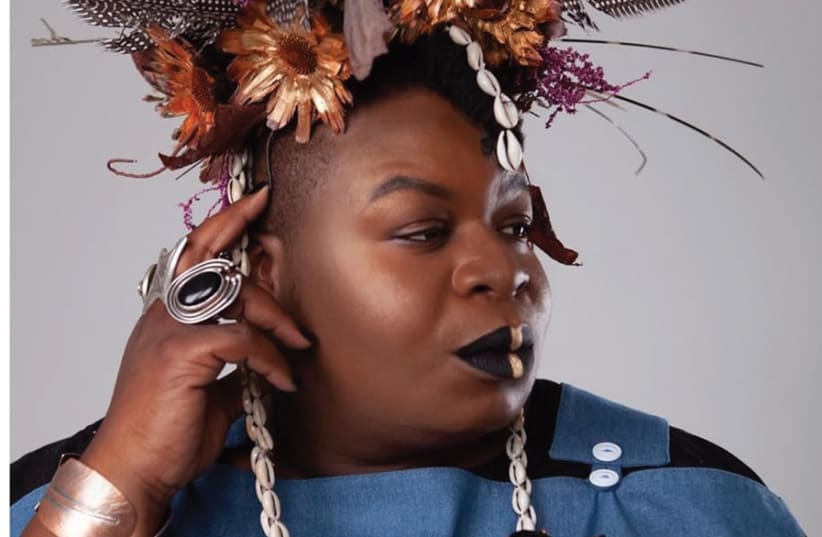Orlin is a veteran South African choreographer. She is known as a troublemaker, an enticer, a deviant and a legend. Her works draw attention to political, social and interpersonal injustices. She points out issues that bother her, that make her lose sleep and that need to be examined more closely. Her choreographies and performances stem from Orlin’s childhood as a Jew in South Africa and are intrinsically tied to the country.
“Somehow, how I look at the world comes out of being Jewish, first-generation South African, and being involved in the breaking down of apartheid. It is my point of reference. You have a certain way of looking at the world after that,” she explained in a recent interview with The Jerusalem Post. Orlin, 64, has been living in Europe for nearly 18 years, and yet she finds herself speaking, dreaming and creating South Africa. She is open and witty, disarming and generous.
In her previous works such as Daddy I’ve Seen This Piece Six Times Before and I Still Don’t Know Why They’re Hurting Each Other and We Must Eat Our Suckers with the Wrapper On, she pinpointed sexual violence and strife in her hometown of Johannesburg. In the latter she brought 15 dancers to the stage using traditional movement and slang from the townships.
The work Orlin will present in Israel began with the meeting with performer and shaman Albert Khoza. Though she had spent years making large-scale works, Orlin found herself drawn to create a solo. “He’s a traditional healer in South Africa, he’s like the new generation. I think the new generation presents a lot of complexities that I find very interesting. I met him and I found him very interesting and we decided to make a piece. And that’s pretty much how it happened,” Orlin explained.
“I WANTED to make a piece about what was happening in South Africa at the time, and is still happening, which is called corrective rape, where black lesbians are raped by black men and very often killed. To come out of apartheid and then have this inability to accept people as they are is just... ” Orlin paused to gather her thoughts.
“When we started working together, I saw that Albert is not female, though he is bisexual and queer. I felt that I had to be more neutral with him. I had been sitting on an idea to do a requiem for peace coming out of South Africa. It was a requiem, which was strange because he’s not Christian and I’m not Christian. We kept going back to a requiem and the seven deadly sins, which is very Catholic. But I think we found a balance.” Orlin admitted that the process was strange and full of twists, turns and even a fair amount of tension between herself and Khoza.
“We both learned a lot from each other and I think it was important for us to work together,” she added.
During the work, Khoza sits with his back to the audience, a camera facing him with the feed projected for the audience to see. Using video and real time footage is a passion of Orlin’s. “I work a lot with real time. I think it’s the only real way to work... with film and video during performance. Generations ago, royalty put themselves in that position, with their backs to the crowd. Dare I say? Lots of leaders put themselves in that situation and forget the people.
Albert is playing the role of a leader, somebody important, somebody regal. And all the time I try to make him human.”
When met with the invitation to perform in the Israel Festival, Orlin took a moment’s pause. “I presented work in the same festival 15 years ago but I didn’t come with,” she said. “I wasn’t sure if I was going to come with. But I feel that it’s important for people to look at certain work and to think very carefully about the world. People will either walk out or they will sit and watch. Whatever happens it will be important,” she said. This time, she will not only accompany Khoza and the technical crew, she will also teach a workshop. “I think the workshop is quite important. I want to find out what people in Israel are thinking.”
Robyn Orlin will present And so you see... our honourable blue sky and ever enduring sun... can only be consumed slice by slice on June 6 and 7 at The Jerusalem Theater. For more information, visit Israel-festival.org.
